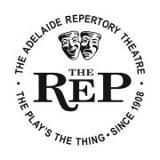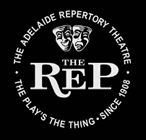Reviewed by Barry Lenny
The Adelaide Repertory Theatre Society is brightening Adelaide’s wet and windy winter with a comedy, Ken Ludwig’s corny 2004 farce, Shakespeare in Hollywood, under the direction of Jude Hines. It was commissioned by the Royal Shakespeare Company, premiering in 2003 at Arena Stage, and won the Hayes award for Best New Play of the Year.
It is derived from back-story of the real Warner Brothers film, directed by Max Reinhardt and William Dieterle, that was released in 1935, starring James Cagney (Bottom), Victor Jory (Oberon), Mickey Rooney (Puck), Joe E. Brown (Flute), Dick Powell (Lysander), and, in her first film role, Olivia de Havilland (Hermia), renamed Olivia Darnell in this play as de Havilland was still alive at the time of writing, and had already sued over the use of her name in another production. Reinhardt’s film was a follow-up to his massive 1934 Hollywood Bowl production, with a cast of hundreds.
Avant garde refugee Austrian Director, Max Reinhardt, takes us back to when he pitched his idea for a film version of Shakespeare’s A Midsummer Night’s Dream to Jack Warner, only to be soundly rejected. Lydia Lansin, Jack’s much younger starlet girlfriend, with delusions of talent, arrives, and Max uses her ambition to play more serious roles to manipulate the magnate into backing the film. The real Reinhardt, incidentally, directed through an interpreter, fellow refugee William Dieterle, as he only spoke Austrian German.
Chaos ensues when the real Oberon, King of the Fairies, and Puck, that master of mischief and mayhem, suddenly find themselves transported onto the Warner Brothers soundstage on that one day in the year when the two worlds are joined, coming directly from that famous Wood Outside Athens. Their arrival is perfectly timed, as the actors playing those roles, Victor Jory and Mickey Rooney (who really did break his leg skiing), had just become unavailable, so the fairy duo is recruited to play themselves.
The play begins with Penni Hamilton-Smith, as Louella Parsons, big and brash, gushing over the high-profile personalities as they arrive, the last being Sam Wiseman, as Max Reinhardt, who recalls his encounter with Jack Warner, played by Ben Todd.
Jasmine Duggan, as Lydia Lansin, gets plenty of laughs as the fictional, ambitious, air-headed actress, with a voice that could cut concrete, and Kieran Drost is nicely nervous as Daryl, Jack Warner’s yes-man, his hassled and put-upon assistant.
Stephen Bills, as Oberon, and Emily Burns, as Puck, appear next, bemused by all that is happening around them and the crazy people whom they meet. Bills carries himself with a regal stature, with a voice to match, commanding the stage, and Burns is exuberant as Puck, in a physically active and enthusiastic performance that is a standout contribution to the production.
A fly in the film’s artistic ointment is Will Hays, played by Adam Schultz, superbly stuffy as the officious censor who wants sections of Shakespeare’s play cut, citing his Hays Code, officially called the Motion Picture Production Code, which was in force from 1934-68, intended to ensure a high level of morality in the movies. If he could only see what is coming out of Hollywood nowadays
Dick Powell is played by Matthew Thompson, well cast as a romantic lead, and Olivia Darnell, played with passion by Leah Lowe, is romantically interested in him, but Oberon takes a liking to Olivia and needs to transfer her desire to him. Cue Puck and the flower, “love-in-idleness”, that causes all the troubles with the mixed-up drug-induced infatuations. Malcolm Walton plays Joe E. Brown, who, in very comical drag, giving him ample opportunity to bring forth much laughter, also gets caught up in the confusion.
A farce relies on fast pace, but this performance seemed rather slow to begin with, perhaps due to opening night nerves, as some voices, too, needed a little more projection to reach the whole audience. The second act picked up the pace and, hopefully, it will all improve over the next few runs. Although there was very little dancing, I would also have liked slightly more elaborate, convincing choreography.
Gary Anderson has contributed an impressive set design, dominated by a huge tree, and Ian Barge’s very varied lighting design does much to add atmosphere to both a sound stage and a whimsical fantasy world. As if playing Puck was not enough, Emily Burns was also responsible for the important sound design, while Sandy Whitelaw ensured that the costumes fitted the period beautifully.
In fairness, it should be said that Ken Ludwig co-wrote the play with William Shakespeare, since a large percentage of the script is quotations, or modified quotations, from a number of the Bard’s plays.
Like most productions, this only runs for two weeks, so be quick to book if you need a good laugh.





